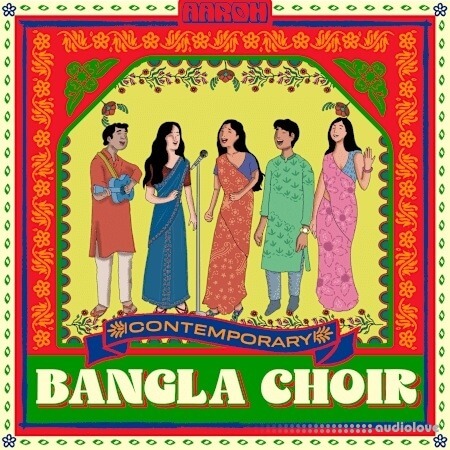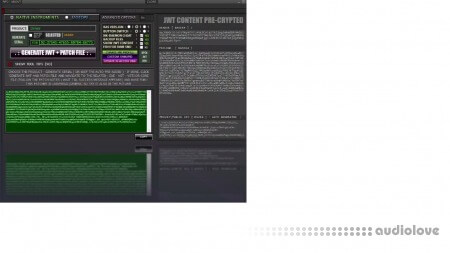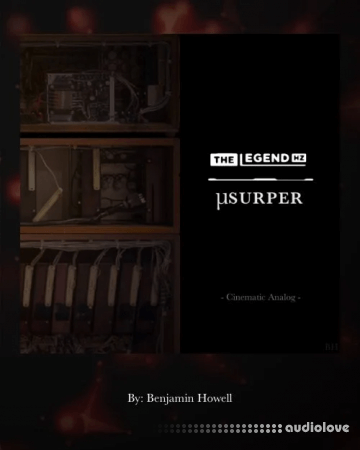Oxford History of Western Music PDF

Oxford History of Western Music PDF | 142.08 MB
The history of "history"--our changing perspectives on the act of narrating and trying to "recapture" the past--encompasses the most profound seismic shifts in modern consciousness. Once seemingly commonsensical, the science-aspiring ambition of historiography to recount the past "as it actually was" (to borrow Leopold von Ranke's famously misunderstood phase) now betrays anachronistic naivete, if not a dangerous arrogance masquerading as objectivity. And the business of cultural history provides a particularly fascinating--and contentious--index to the larger issues at stake. The very urgency of the debate over "how" to tell the story (and indeed what the story is) continues to intensify in proportion to the uncertainty of our times.
Considering its official title (bearing an impressive imprimatur from Oxford University Press, the vanguard of scholarly reference works), Richard Taruskin's grand opus might appear at first glance to eschew the more-heated arenas of debate involving cultural history. Quite the contrary: Taruskin throws down the gauntlet at once and passionately joins in the fray. In the process, he strips the story of music's development in the West (i.e., Europe and America) of its deceptively innocuous trappings and received ideas, thrusting it into the spotlight of contemporary critical inquiry. The result, virtually a priori, is a highly controversial reexamination of a narrative that will cause even the most open-minded music lover to do a number of double-takes. What's extraordinary about Taruskin's achievement is how immensely engrossing, insightful, provocative, fresh, and downright brilliant the "history of Western music" becomes in his weaving of it.
But why yet another sweeping history when the New Grove Dictionary of Music has been recently overhauled (in an edition to which Taruskin prolifically contributed), and when long-standing classic texts such as Paul Henry Lang's Music in Western Civilization continue to be reissued? The heart of the matter lies in the very ambition behind this new history. First, some of the fun factoids: at nearly 4,000 pages (along with an additional resource volume containing master index, chronologies, and bibliography), The Oxford History of Western Music weighs nearly 20 pounds and took a decade to write. In other words, this isn't history-by-committee. Its perspective from the point of view of one massively learned individual is at once the work's chief strength and its Achilles heel. Taruskin's powerful voice echoes the kind of "old-fashioned" synthesis, with its attempt at an "overarching trajectory," of such pioneering cultural historians as Jacob Burckhardt or perhaps even the epic sweep of Gibbon's The Decline and Fall of the Roman Empireù-an antidote to the curse of ivory-tower specialization. But, more crucially, Taruskin arms that voice with the toolkit of contemporary historiography to pursue a critical rethinking of how Western music turned out as it did, and where it is today. His singular viewpoint anchors Taruskin's attempt to show that "the literate tradition of Western music is coherent at least insofar as it has a completed shape." It's important to realize, as Taruskin early acknowledges, that his work is meant not as a stock-taking "survey" but as a history. That is, it involves an unfolding both of that larger coherence and of many smaller narratives that are its tributaries: not of the artwork (or composer) alone, but those of its production, its social and political context, and its (often-changing) reception as integral components of musical "meaning." Taruskin's aim is to filter out the distorting perspectives of "historicism" (the myth of purposeful, goal-oriented evolution through history) and aestheticism (which considers the artwork as a "pure," timeless entity). Along the way, this means smashing rows upon rows of icons and legends (not surprisingly, the bulk of these stemming from the 19th-century Germanic tradition, but also comprising a good deal of 20th-century received ideas about Stravinsky, Soviet composers such as Shostakovich, and various postwar "elitisms").
Inevitably, Taruskin doesn't prove immune to resorting to some legends of his own. In an extraordinary overview of Wagner, for example, he persuasively debunks the routine citation of Tristan und Isolde as pointing toward the coming "collapse of tonality," demonstrating how such thinking is the epitome of "the historicist tendency to write history backward with an eye toward giving the present a justification." Yet he's also capable of reducing the Wagner of the Ring to an obsession with a "cult of strength" in what is an otherwise deeply insightful discussion of "the Wagner problem." In terms of the larger stakes of this history, Taruskin's strongly argued debating points (and debunkings) at times veer in more eccentric directions, especially when it comes to such pivotal figures as Stravinsky, who gets a particularly intense thrashing. And regardless of Taruskin's theoretical stances, the reader must be alert to alarming occasional lapses of "mere" fact (how, one wonders, could an editorial team of over 40 not notice the claim that Carmina burana is scored for eight soloists in their fact checks, or fail to ensure that the endnotes match actual citations in the text?) Other tics, such as the author's fondness for scare quotes, may leap out depending on one's particular allergies.
Despite its imperfections, Taruskin's work is undeniably a stunning and stimulating achievement. It's impossible to describe adequately the sheer artfulness of his method, whereby he can distill a multiple series of investigations into a few wonderfully insightful sentences. Ever the master contrapuntalist, Taruskin weaves his various levels of discourse into a meaningful whole. There is true virtuosity in his ability to toggle from social history to in-the-trenches musicological analysis, zeroing in with his uncanny intuition to the most rewardingly illustrative points. His method of the exemplifying metonym--using just a few examples to wring out maximum insight, like the linear perspective of Renaissance artists--becomes a tour de force in his examination of figures such as Du Fay, D. Scarlatti, J.S. Bach, Beethoven, Schoenberg, or Britten. Taruskin's scope moreover is as radically reorienting as the Big Bang theory when it comes to the relative proportions he accords the narrative of Western music. Beginning with the advent of "literate" musical culture in Carolingian times, he devotes a great deal of attention to what was long thrown together as the "pre-Bach" era. Even more radically, around 40% of the total text is devoted to music of the 20th century (two of the five volumes of the history proper). Within this span, amid all its mind-boggling diversity, a number of centripetal themes emerge: the interdependence of "absolute" and "program" music, the interplay of oral and folk with literate musical cultures, the power of myth, and the possibility for musical "meaning." Taruskin's journey is endlessly fascinating, and his work makes an enormous contribution to the field. For all the controversy it's destined to generate, it will become impossible to ignore. Perhaps its surest mark of success is the sense of urgent importance and connectedness with which this history invests the cultural matter of music. Wherever you dip in, Taruskin invites an open conversation that leaves plenty of new, revealing perceptions in its wake, but probably more questions that when you started. Indeed, there's a sense that Taruskin would consider his work to have failed if the reader were only to nod in assent to all he has to say.
Author Richard Taruskin
The definitive history of Western music, by the foremost musicologist of our time
Winner of the R. R. Hawkins Award (Association of American Publishers) for Best Scholarly Work
Named one of the Best Books of 2005 by The Sunday San Francisco Chronicle
Includes 500 illustrations, 1,800 musical examples, and an easy-to-navigate index
home page:
bit.ly/1wWNNtH
DOWNLOAD LiNKS:
http://ul.to/lx5maz11
http://k2s.cc/file/e431cebd89ea4/Oxford.History.of.Western.Music.rar
http://k2s.cc/file/e431cebd89ea4/Oxford.History.of.Western.Music.rar

Links are dead? You can send request (you must be registred user) to re-upload articles
with dead links and our team will try to re-upload files for you as soon as possible.
with dead links and our team will try to re-upload files for you as soon as possible.
Related News:
 The History of Rock – September 2015
The History of Rock – September 2015The History of Rock – September 2015 English | 148 pages | True PDF | 36.31 MB...
 Richard James Burgess The History of Music Production
Richard James Burgess The History of Music ProductionEnglish | ISBN: 0199357161, 019935717X | 2014 | 264 pages | PDF | 5.84 MB Richard James Burgess draws on his experience as a producer, a musician, and an author in this history of recorded music, which focuses on the development of music production as both art form and profession. This comprehensive narrative begins in 1860 with the first known recording of an acoustic sound and moves...
 Cowboys and Indies: The Epic History of the Record Industry
Cowboys and Indies: The Epic History of the Record IndustryLanguage: English | PDF | ISBN-10: 1250043379 | 2014 | 400 pages | 3.14 MB Cowboys and Indies is nothing less than the first definitive history of the recording industry on both sides of the Atlantic. From the invention of the earliest known sound-recording device in 1850s Paris to the CD crash and digital boom today, author and industry insider Gareth Murphy takes readers on an immensely...
 Smithsonian Music: The Definitive Visual History
Smithsonian Music: The Definitive Visual HistorySmithsonian Music: The Definitive Visual History DK (Author) | 2013 | True PDF | ISBN: 1465414363 | 482 pages | 123 MB Produced in association with the Smithsonian and including images from The National Music Museum in South Dakota, Music: The Definitive Visual History guides readers through the progression of music since its prehistoric beginnings, discussing not just Western classical music,...




Comments for Oxford History of Western Music PDF:
No comments yet, add a comment!